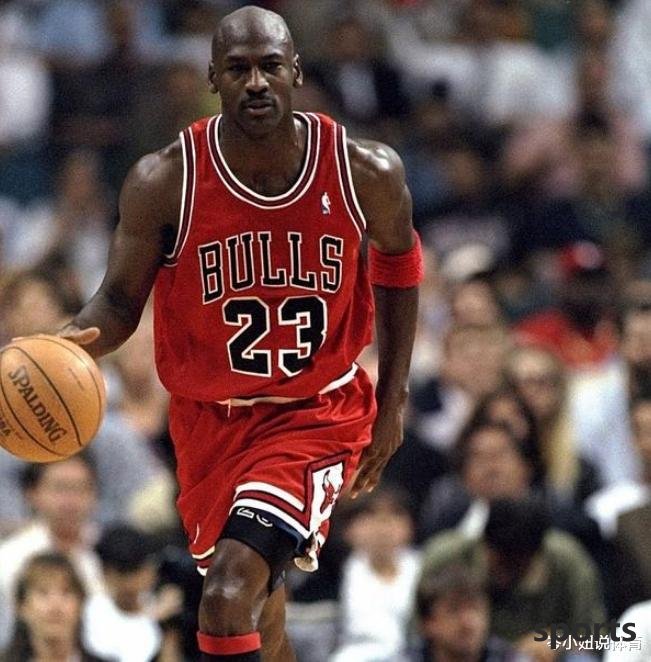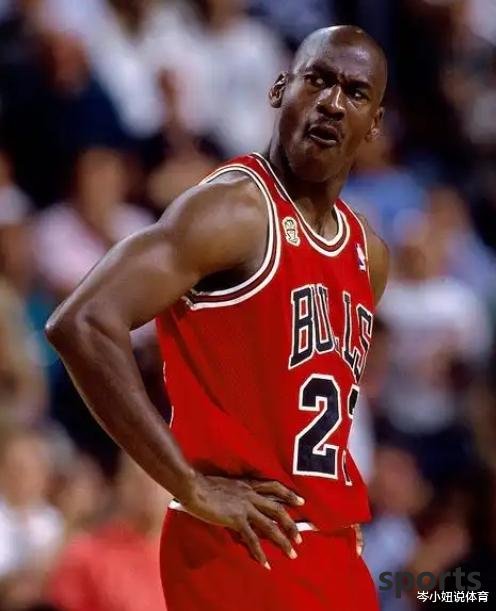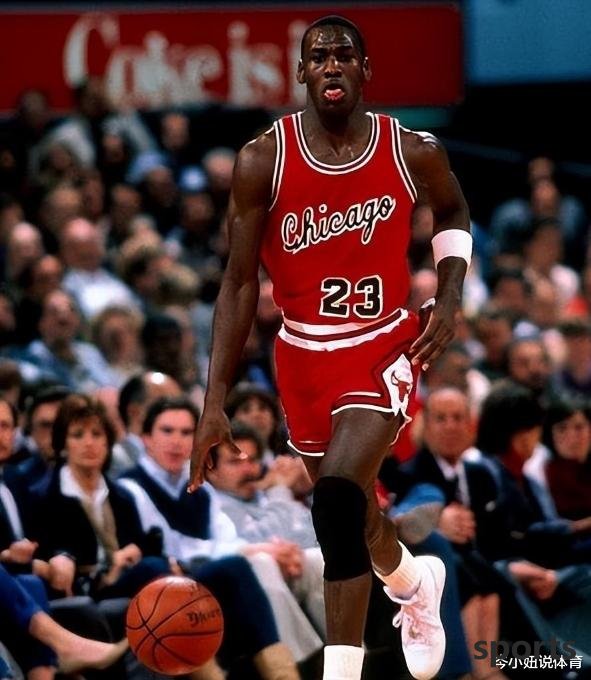Addy Dports > Basketball > Payton is famous for limiting Jordan in the finals? Not so, Jordan is just in a state of sluggishness
Payton is famous for limiting Jordan in the finals? Not so, Jordan is just in a state of sluggishness
On June 2, after the third game of the 1996 NBA Finals, the Chicago Bulls led the Seattle Supersonics with an absolute advantage of 3-0. At that time, the media was overwhelmingly exaggerating the "successful restrictions" of Gary Payton for Michael Jordan, but selectively ignored the fact that the series had long lost its suspense. When the reflection of the Bulls’ players pouring the championship trophy with champagne in the locker room was clearly visible, the so-called “gloves lock the flying man” narrative is more like a carefully designed consolation prize.

Retrospective of historical data will find interesting contrasts: in the first three games of Payton's main defense against Jordan, the Bulls averaged 12.3 points per game, and Jordan still contributed a comprehensive data of 28.7 points, 5.3 rebounds and 4.7 assists. Supersonics coach George Carl only launched a change of lineup in a desperate situation of 0-3, allowing the defensive player of the year to face Jordan. In essence, this is more like a perfunctory response to media expectations. As the Chicago Tribune reporter Sam Smith disclosed in his memoir: "No one in the locker room discusses Payton's defense, and Phil Jackson even joked that he hoped the Supersonics would stick to this strategy, because Jordan scored 5 more points every time he was provoked. "
In-depth analysis of the game video can dismantle the construction process of this myth. In the fourth game, Jordan scored 23 points from 11 of 23 shots, it seemed that his efficiency was reduced, but eight of them were forced shots under assisted defense interference. The "Box-1" tactical system adopted by the Supersonics at this time is essentially to sacrifice overall defense to build up the advantage of local numbers. This defensive strategy of drinking poison to quench thirst did indeed cause Jordan’s personal data to decline slightly, but it caused Pippen, Kukoc and others to explode in full - G4 scored a total of 47 points, and the Bulls’ shooting percentage increased to 51.2%. Detev Schlumpf, then supersonic assistant coach, later admitted: "We are like using fire extinguishers to fight forest fires, which can only make the fire look a little smaller. "

The shaping of media myths often follows the principle of drama first. The NBA official documentary deliberately magnified the shot of Jordan G4 in the last moment facing Payton, but cut off the scene where he successfully played three consecutive singles. This editing technique is exactly the same as the Magician's return against Jordan in 1995 - highlighting the suspense against the weakening of the strength gap. FOX Sports veteran producer Jason Whitlock revealed: "The audience needs heroes and villains. Payton's trash talk and exaggerated defensive actions have more ratings than boring scores. "
From the perspective of sports science, 32-year-old Jordan was suffering from severe gastroenteritis during the finals. Team doctor John Hefron's medical record shows that Jordan's body fat rate plummeted to 4.1% before the G5 game, far lower than his normal game. Even so, when the Supersonics won a lucky draw in G4, Jordan immediately responded with 26 points and 11 rebounds in the more critical G5, proving that the so-called "limits" are just an illusion on the time scale. Former Suns doctor Thomas Carter analyzed: "The flu battle and this sick battle show that the only thing that can really limit Jordan is his physical condition. "

This case reflects common cognitive biases in sports narratives. When the Cavaliers reversed and won the championship in 2016, the media suddenly recalled the old news that "Peton defended Jordan" but deliberately avoided the essential differences between the two - the Warriors' turnaround was due to the superposition of variables such as Green's suspension and Bogut's injury, and in 1996, the Bulls always controlled the rhythm of the series. Supersonics legend Sean Kemp's complaint on the podcast show hit the nail on the head: "If the standard for defending Jordan is to make him average 27 points per game, then at least 20 defensive experts in the league should enter the Hall of Fame. "
The vertical comparison of historical data is more convincing. Jordan averaged 33.6 points in six finals, while the "trough" of 27.3 points in the 1996 series is still higher than the career average of legends such as Magic and Bird. What is more noteworthy is that when Payton first played against Jordan in the regular season in 1993, the latter scored 40 points; by the time he saw him in the 1996 Finals, Jordan's average score did drop by 13 points, but this is more due to the improvement of the Bulls' overall strength - when Rodman, Harper and others shared the defensive pressure, Jordan no longer had to take on the big stakes like he did in the early days.
Recalling the media reports that year, Sports Illustrated conducted a questionnaire during the finals: 87% of players believe that even if Payton defends Jordan in advance, the Bulls will still win the championship 4-0. This deliberately ignored poll results confirm the gap between professional groups and public perception. As Jordan wrote in his autobiography: "When you know that you can win another game, the numbers in the data column become meaningless." Perhaps the real greatness lies not in the gains and losses of a certain game, but in the absolute dominance that makes the winner lose the suspense.
Related Posts
55.2 million and 16 points! Has the former MVP become a liability? Philadelphia really needs to turn the tables!
Basketball"The 76ers management is discussing trading Embiid!" Recently, Cousins made a lot of comments about Embiid on the "Run It Back" program. A few years ago, if a retired former All-Star center commented on an MVP-level player li...
moreThe Rockets have the best offense in the league! Seven players scored in double figures for two consecutive games. KD set the pace in the final quarter.
BasketballThe Rockets defeated the Raptors 139-121 in an away game to win two consecutive games. In today's game, 7 Rockets players scored in double figures: Kevin Durant scored 31 points, Jabari Smith 25 points, Shen Jing 18 points, 8 rebounds and 9 assi...
moreWhat a monster! Antetokounmpo ranks first in the league in scoring in the paint so far this season with 26.5 points per game and his shooting percentage is 76.8%.
BasketballOctober 29th NBA regular season news, the Bucks defeated the Knicks 121-111. Antetokounmpo played strongly, playing 34 minutes, making 16 of 22 shots, 0 of 1 three-pointers, 5 of 7 free throws, scoring 37 points, 8 rebounds, 7 assists, 1 steal and 2...
more
Hot Posts
- 50 points against Curry! Comparable to Jordan and Chamberlain! The most underrated superstar in the NBA
- Perkins: I publicly reminded Westbrook to control his emotions three or four years ago, otherwise he might not have a ball to play.
- Rockets 8 for 1 Durant ranks first! ESPN announces 15 votes: Curry becomes the best in the United States
- Keep the present and win the future. Is it reasonable to have three of the strongest teams in the past five years in front of the Rockets?
- Leonard s Yin-Yang contract has caused heated discussion! He was ridiculed to make two money without working. The Lakers missed him in 19 years.
- Suns Exclusive: Some Manchester United first-team players think 39-year-old three-pointer Heaton deserves the chance
- 19+5 in 24 minutes! Doncic s debut performance was good: three-pointers are very accurate
- Warriors sign Curry + Payton Jr. at the base salary: Curry brothers join forces to renew the contract
- Four teams are rushing to demand James? The rumor of the trade of 40-year-old James has triggered the NBA offseason.
- Behind the Celtic Eagles Trading: Typical cyclical interleaving transactions, the former values the future and the latter focuses on the present
Recent Posts
-
Du Deng 2.0 American Records: The Clippers plan to chase older super giants & veterans with experience in winning the championship
-
130 million luxury tax was wasted? The fatal hidden dangers of the Nuggets were completely exposed!
-
What’s different about the Warriors winning games
-
The open three-point shooting percentage is 28%! The Timberwolves made 51 long shots with iron sound formation
-
The first person to publicly question MVP was born, Edwards was fined $50,000, with a total of 430,000 this season
-
Team Note: After the incident is resolved, the Warriors will sign Horford and Melton as soon as possible
-
Rockets General Manager: Will find a way to renew Adams
-
The second prize + 10th lottery has been exchanged for KD for one year, and the Rockets are not bad at winning the championship!
-
The Bucks paid two rounds to send off the veterans in the backcourt, and they cleared some salary space?
-
The Clippers finally strengthened the No. 4 position! Powell became a bargaining chip! Everything is ready, only Bill is missing